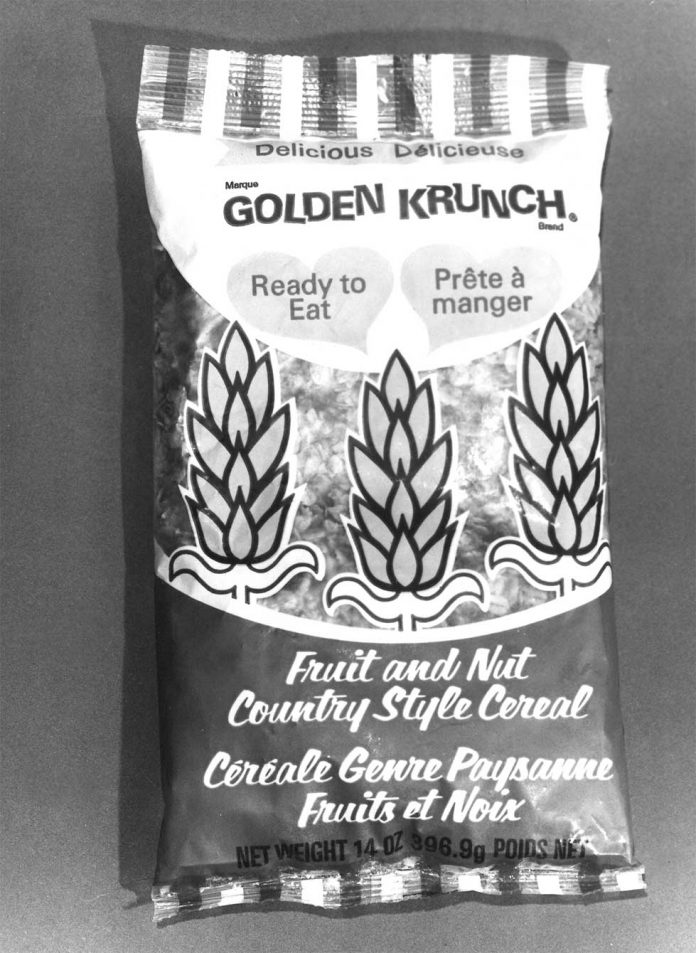Remembering A Health Food Pioneer
Willie Pelzer
1934-2013
By Lio Perron
The life story of the man affectionately known as the “Granola King” is a compelling one. Born in a German family from Lemberg, Poland, Withold Pelzer sailed across the Atlantic to chart a new life in North America after the end of the Second World War. Unfazed by his lack of post-secondary education, his rudimentary English and the backlash against German immigrants at the time, the hard-working 17-year-old found work in the sugar beet fields of Lethbridge, Alberta. A few years later, he moved to Saskatchewan to work on a grain farm. In 1961, after a decade in Western Canada, Pelzer and his young bride moved to Ontario to find new opportunities.
Five decades later, through sheer willpower, Pelzer went on to invent granola in his kitchen. He built a sizable fortune and had an unprecedented impact on Canada’s natural food industry with a string of innovative food products. Today, Sunny Crunch Foods Ltd. has a staff of 100 employees producing an impressive range of products, including granola cereal, nutrition bars, meal replacement bars, sports nutrition bars, energy bars, snack bars, protein powders and herbal capsules. The company’s products are sold in Canada and around the world under different labels.
“It all goes back to grandma’s recipe. She would take oats, sweeten them with honey and served them warm for dessert. Kids just loved it. No artificial preservatives, just whole grain goodness and organic honey,” explains his son Richard Pelzer who has succeeded his father as company president.
The self-made millionaire gambled his life on a simple family recipe in an industry that was struggling to gain acceptance and recognition in the late 1960s. On Sunny Crunch’s website, Pelzer is quoted as saying “Porridge was one of the only foods I knew of that used rolled oats and I wanted to come up with a new kind of food that would make use of rolled oats and other healthy grains in an attractive new way.”
However, the road to riches was a rocky one. “Dominion was the dominant chain back then. He would visit the personal buyer of each store and try to convince them to sell his granola cereal, but the answer was always the same. This is bird seeds, this is not a product for consumers. They’ll never eat this. No thanks, please go away,” says Richard Pelzer.
The Birth of Canada’s Natural Health Product Industry
Despite repeated setbacks, Willie Pelzer took it all in stride. The dream within his heart was too intense for him to quit in the face of temporary defeat. In 1964, Pelzer, Bill Cooper, Walt Zimmerman, Al Smith, Lionel Pasen and other like-minded health food pioneers banded together to create the Canadian Health Food Association.
“Willie’s talent was getting rid of all the clutter. He saw the basic problem. Very often we would all get lost in the minutiae that doesn’t count. He got rid of all that and got down to the bare facts. It was a pleasure working with him,” explains industry veteran Lionel Pasen, founder of the Toronto-based company, Natural Products Consulting Corp.
The CHFA now represents over 1,000 businesses across Canada. It’s the country’s largest trade association dedicated to natural health and organic products. Members include manufacturers, retailers, wholesalers, distributors, and importers of natural and organic products. These can include foods, vitamin and mineral supplements, herbal products, homeopathics, sports nutrition products, and health and beauty aids.
Since its creation, the CHFA has played a pivotal role in educating the public about its members’ products. It has also successfully lobbied governments to help grow and protect the industry. Today the natural health product industry is worth $3 billion annually to the Canadian economy. However, in the early days the CHFA remained wary of unsolicited government interference. For example, in the 1970s the Ontario government toyed with the idea of restricting the sale of vitamins to pharmacies alone. It’s a move both Pasen and Pelzer were determined to prevent.
“We met with Dr Allan Dyer who was a senior civil servant representing the Ontario government. Willie and I walked out of the meeting saying ‘Dr. Dyer, you’ll request the next meeting with us’. We went down to a restaurant and I said to Willie, what are we going to do?” says Pasen with a chuckle. “We started a letter campaign. Fortunately, there was a postal strike at the time. By the time the strike was over we had collected 40,000 signatures and the government backed off.”
Willie Pelzer’s life was intricately linked to the Canadian Health Food Association. He presided over the CHFA from 1969 to 1971, and again from 1991 to 1997. “Willie Pelzer assumed the presidency of the CHFA for a second time at a critical juncture in its history. His energy and personal generosity provided a stable financial platform that allowed the Association to grow into the dynamic organization it is today,” says William Gall, past CHFA Board Chair.
By the early 1990s, the industry wanted its own regulation. With the support of health food stores, they launched another letter campaign. The CHFA lobbied federal Health Minister Allan Rock, whose wife was a natural health aficionado. The government accepted all 53 recommendations put forward by the industry and created a new directorate at Health Canada to regulate the industry.
A Recipe for Success
While Pelzer’s commitment to the CHFA was never in doubt, making granola a mainstream food item remained his overriding priority. In the late 1960s and early 1970s health food stores were few and far between. In order to reach the largest number of customers, Pelzer and his wife set their sights on big retailers.
“We would make stands in grocery stores and shopping malls and handout granola for people to taste and tell them where they can buy it,” explains his wife, Joy Pelzer. These forays into large supermarkets fueled his desire to achieve success despite his inability to capture the imagination of big grocery chain buyers.
Not one to take no for an answer, Pelzer kept going back to meet the same buyers over and over again.
“One day, he got to the last buyer and of course he said ‘no’ because that’s what they all said,” explains Richard. “As he was walking out of the office, for whatever reason, he got an inspiration and turned around. For the next 20 minutes, he preached a sermon to the buyer. He doesn’t know where it came from, he can’t recall what he said. For 20 minutes, he pointed his finger at the buyer telling him he’s making a mistake. The buyer said, Willie I want you to do a demonstration at my store for one weekend and we’ll take it from there.”
It was a daunting task. If Pelzer had failed to capture people’s imagination, it likely would have been a fatal blow to his dream. Just like a “clutch” athlete, Pelzer had an uncanny ability to perform above expectations in high-pressure situations. When the time came, he loaded the front seat, the back seat and the trunk of his car and drove to the supermarket to set up a booth in the cereal aisle. By the end of the weekend he had sold out.
In one weekend, Pelzer had won over customers. The growing popularity of granola wasn’t lost on Dominion buyers. One by one, they started ordering his granola cereal in much larger quantities.
Despite their early success, he and Joy kept reinvesting every penny back into the business when they first launched Sunny Crunch Foods Ltd. “We worked day and night,” says Joy. “We would start at eight in the morning and go until two in the morning when we first opened our little factory. We were baking and packaging for delivery the next day. We took jobs cleaning offices to make extra money. We had to do this for about ten years.”
They eventually found success, but it didn’t change Pelzer, according to those closest to him. He remained generous towards the CHFA and gregarious toward his employees.
“When you make a mistake, bosses usually get upset and it might be cause for dismissal,” says Vasco Rego, who has been plant manager at Sunny Crunch Foods Ltd for the past 36 years. “He saw mistakes as a positive because he felt people usually learn from them.”
Through his street-smarts, resourcefulness, stubbornness and hard work, Pelzer created a health food giant out of nothing. At the time of his death, he was at the top of the food chain as one of the richest and most successful entrepreneurs in Canada’s health food industry.
Willie Pelzer passed away at the Mackenzie Health hospital in Richmond Hill on Friday, May 17 with his family at his side. He was 79 years old. IHR







